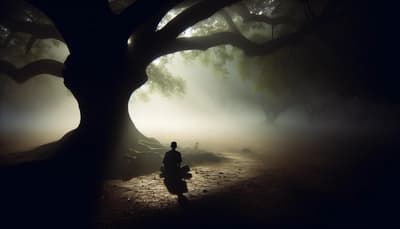Hargrove Julian

Location: Sedona, Arizona
Julian Hargrove is a meditation philosopher and contemplative writer with a lifelong interest in silence, presence, and the art of inner observation.
Experience
Over the past 40 years, Julian has explored a wide range of meditative traditions—from Zen and Advaita to Vipassana and poetic mysticism. His writings invite readers to slow down, reflect deeply, and rediscover simplicity in the present moment.
Education
M.A. in Comparative Philosophy, University of Chicago
Longtime practitioner of Zen and Advaita Vedanta
Posts

Samadhi Explained Simply: Entering the Center of Stillness
Samadhi—sometimes called pure awareness or absorption—appears simple in words, elusive in experience. Here, there is just presence. No push and pull, no seeking or naming.

Buddhist Philosophy Explained: Dwelling at the Edge of Knowing
To explain a philosophy is to reach out, lightly, toward that which cannot be held. In the quiet hush of Buddhist thought, explanations dissolve into presence, and the question lingers longer than any answer.

Eightfold Path: Moving Quietly Toward an Inner Way
teaser

The Role of Silence in Eastern Philosophy: Between Words and Knowing
Sometimes, the deepest truths in eastern philosophy hover just outside the boundaries of speech. In silence, the play of dharma, maya, and possibility gently reveals itself—a presence felt only when the mind is quiet enough to notice.

East Asian Virtue Ethics: Walking the Subtle Path of Self and Discipline
East Asian virtue ethics is not a code to memorize, but a quiet rhythm to move with. In the hush between thought and action, spiritual discipline in the eastern tradition, and the gentle questioning of what the self really is, there is a space to pause — to notice virtue as a living, shifting practice.

Modern Western Philosophy and Ethics: Pausing Beneath the Surface
To examine modern western philosophy and ethics is not to peel back history, but to rest for a moment in the patterns of thought that move within and beyond us. There is a certain quiet in asking — and an even deeper quiet in simply allowing the questions to remain.
